Logical Reasoning Easy Worksheets for Ages 3-8
9 filtered results
-
From - To
Welcome to our collection of "Logical Reasoning Easy Worksheets for Ages 3-8"! Designed to nurture essential thinking skills in young learners, these engaging worksheets promote problem-solving, pattern recognition, and critical thinking in a fun, age-appropriate manner. Each worksheet is crafted to captivate children while encouraging independent thought and logical progression. With vibrant illustrations and interactive activities, kids will enjoy exploring concepts like sequencing, categorization, and comparisons. Perfect for both classroom and at-home learning, our worksheets provide valuable practice to enrich cognitive development. Download and print these easy worksheets today to inspire a lifelong love for learning in your little ones!
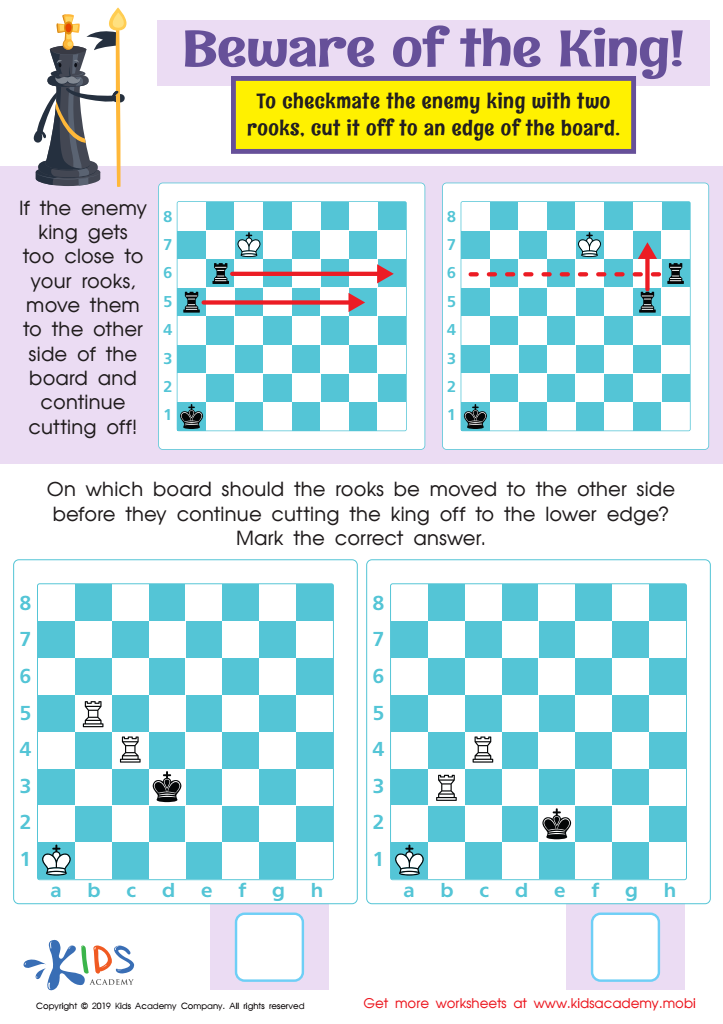

Beware of the King! Worksheet
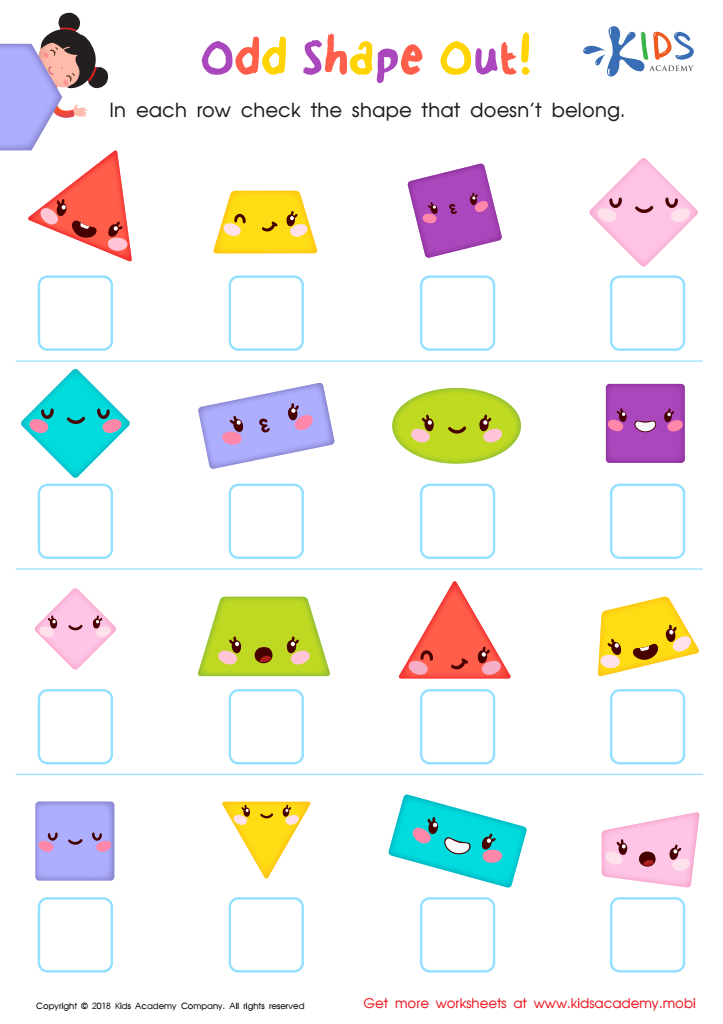

Odd Shape Out Worksheet for Grade 3
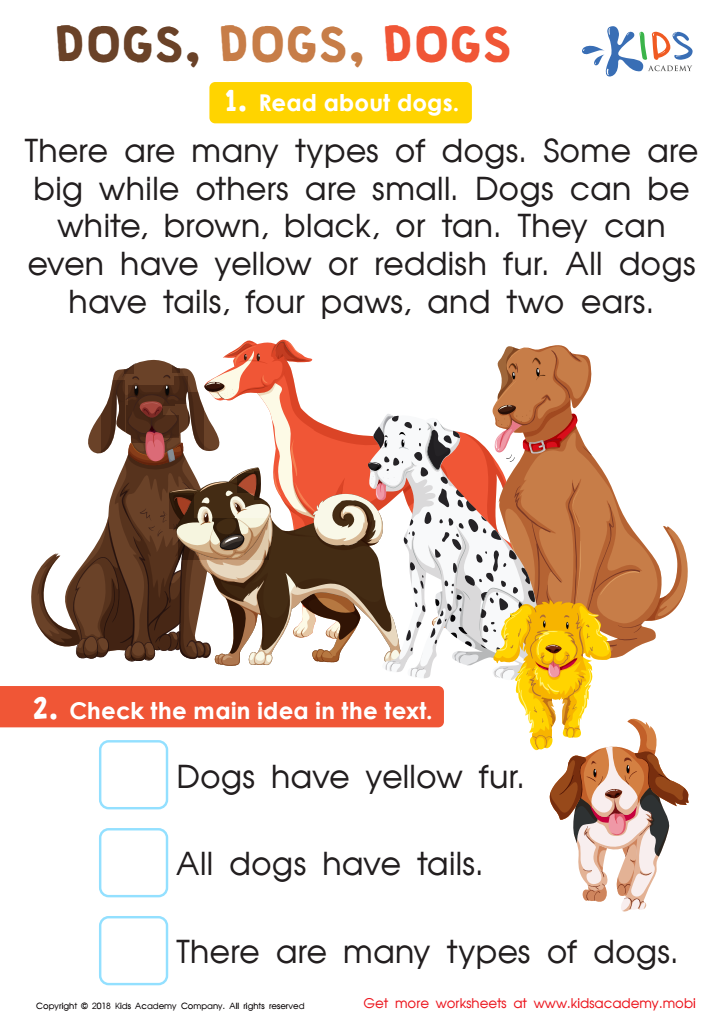

Dogs, Dogs Worksheet
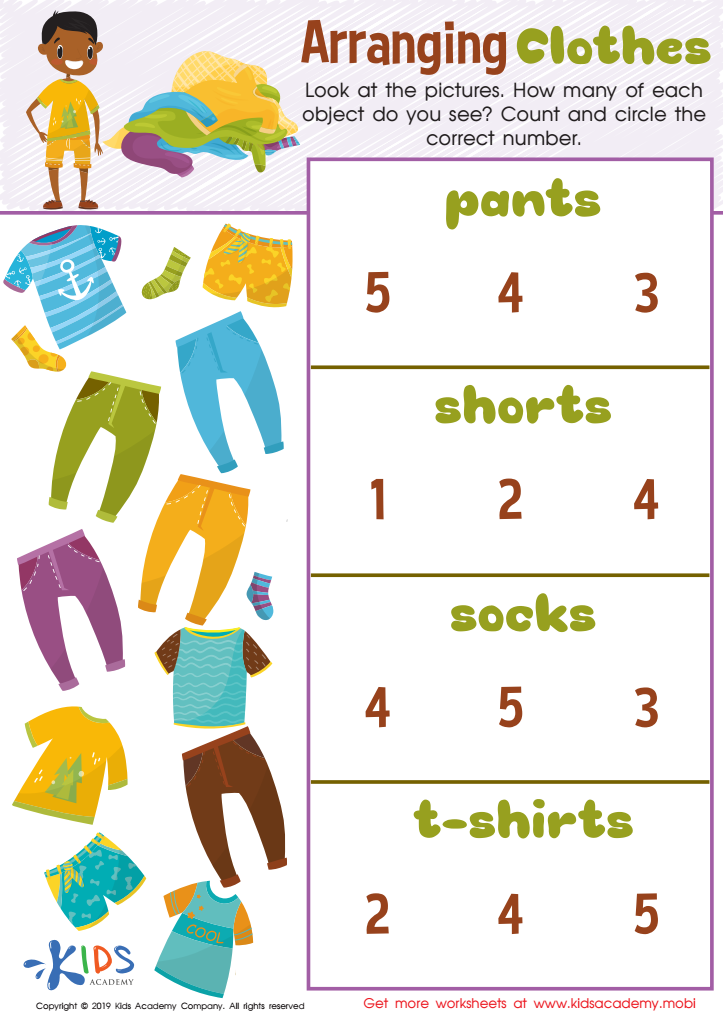

Arranging Clothes Worksheet
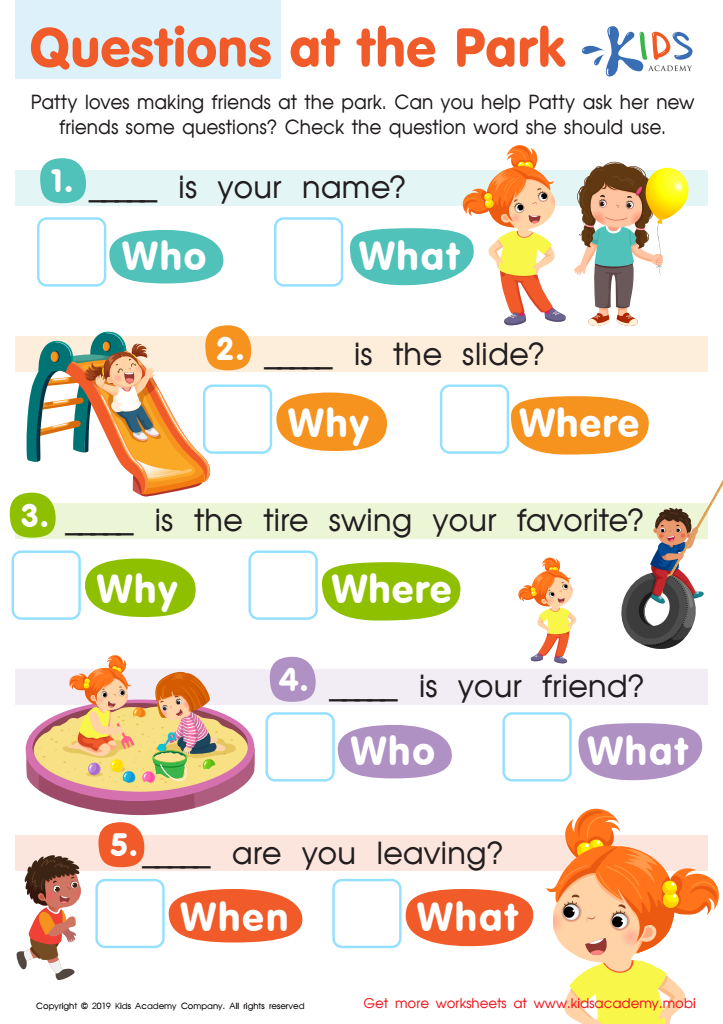

Questions at the Park Worksheet
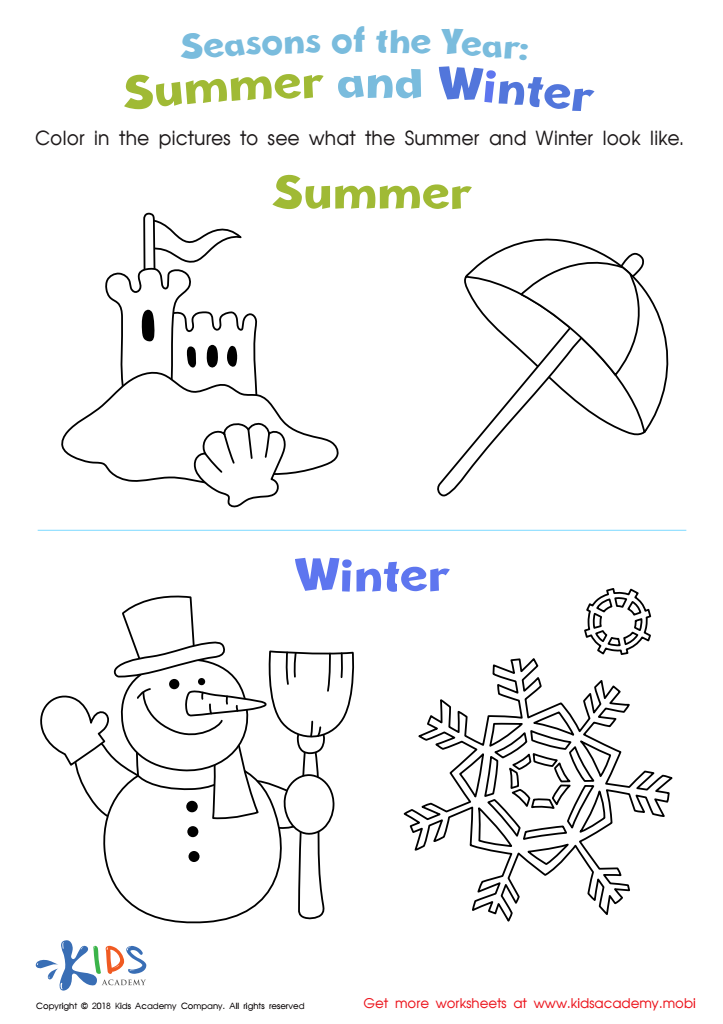

Summer and Winter Worksheet
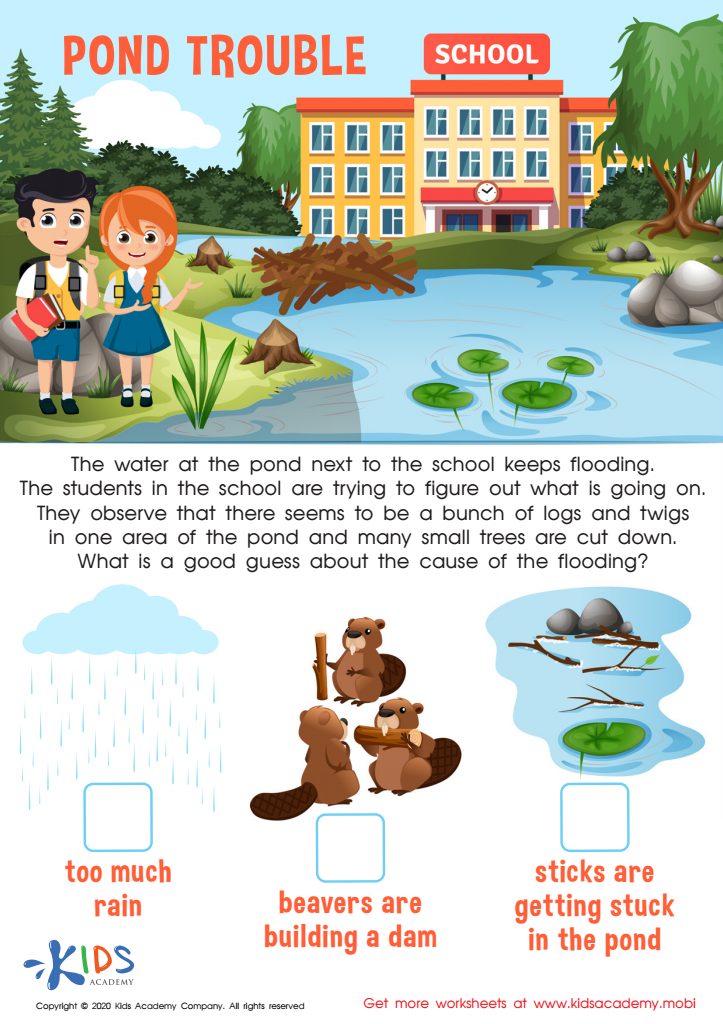

Pond Trouble Worksheet
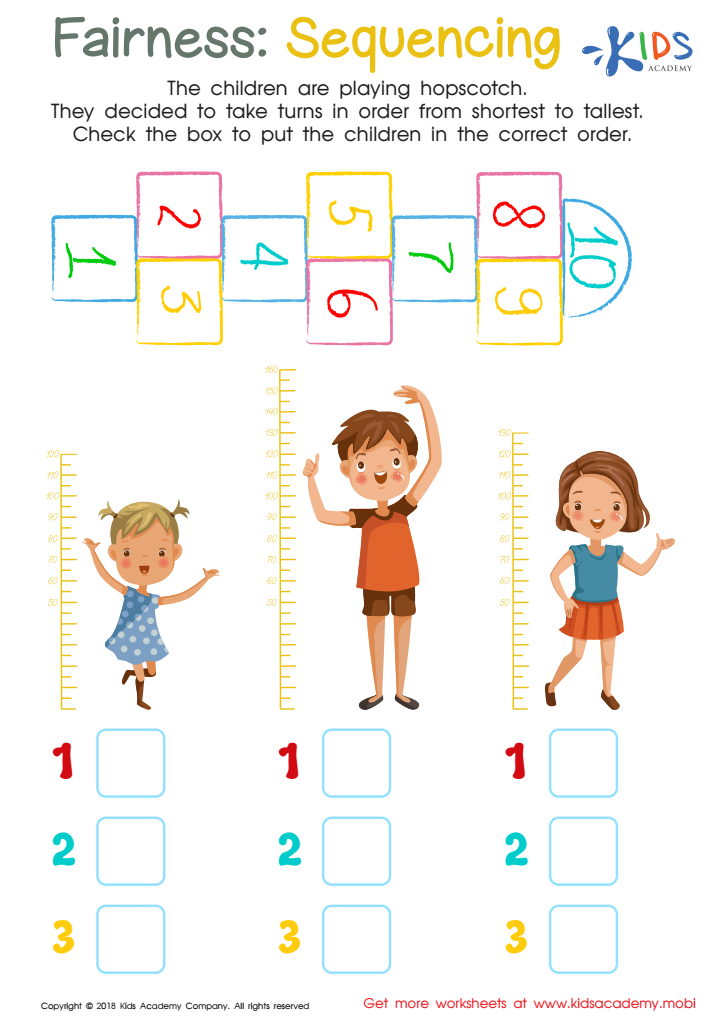

Fairness: Sequencing Worksheet
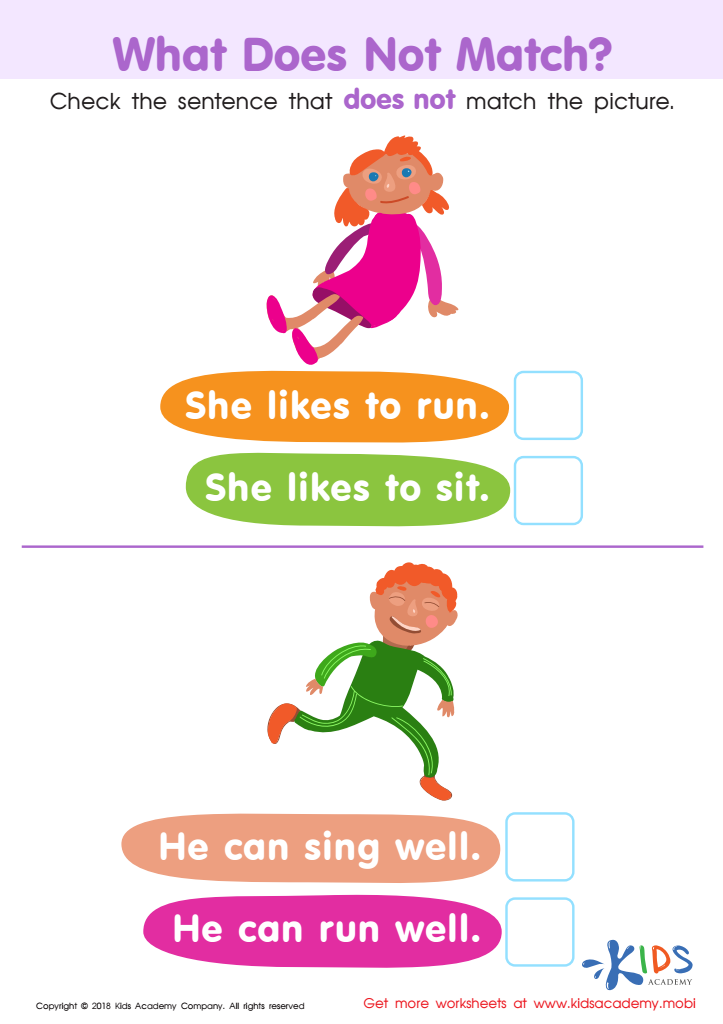

What Does Not Match? Worksheet
Logical reasoning is a critical cognitive skill that provides the foundation for problem-solving, decision-making, and analytical thinking in children. For parents and teachers of children aged 3-8, cultivating these skills early on is important for several key reasons.
Firstly, children at this age are naturally curious explorers. Engaging them in logical reasoning activities harnesses their curiosity and challenges them to think critically, enhancing their cognitive development. This not only aids them academically but also supports everyday problem-solving scenarios.
Moreover, logical reasoning encourages creativity and innovation. When children learn to organize their thoughts and draw connections, they begin to create original ideas and solutions. Activities fostering these skills can prevent the development of rigid thinking patterns, promoting an adaptable mindset.
Additionally, logical reasoning enhances social skills. It enables children to better interpret and respond to social cues, and engage in constructive discussions with peers. This is crucial for emotional intelligence and building relationships.
Investing time in logical reasoning activities creates a strong educational foundation, preparing children for future academic challenges, nurturing a love of learning, and contributing to lifelong skills that benefit their overall well-being. By prioritizing these skills, parents and teachers equip children to navigate an increasingly complex world.
 Assign to My Students
Assign to My Students




















